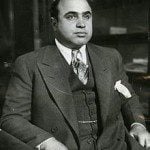Here’s the latest on a news story from 2014, from the Chicago Tribune: “Church employee fired over same-sex marriage sues Chicago archdiocese.”
The background: Colin Collette, who had worked for Holy Family Church in Inverness as Music Director for 17 years, announced his engagement — to a man — on Facebook in 2014. The reports at the time were that it was well-known that he was gay, and the parishioners were split between those who supported Collette and those who considered his situation to be a matter of “don’t ask, don’t tell”, as long as he kept his private life private. (Left unsaid is that the Facebook announcement was a “public” announcement, not restricted to friends only, beyond any extent to which his Facebook friends list included Holy Family parishioners and associates.)
Well, there’s a new update: Collette is suing the Archdiocese. It’s highly unlikely that his suit will succeed, when the right of churches to uphold moral standards in its hiring has never been at risk legally, and a music director is surely presumed to have a “ministerial” sort of role rather than just a neutral function like a janitor. Holy Family, in particular, is known in the area for having a very contemporary style of music, and, from what I understand, intentionally was designed to be a Catholic alternative to the “worship music” at Willow Creek and similar Protestant churches, which means that the music selection and performance is an important part of the ministry there, and far more than an organist playing a prescribed list of songs.
But here’s his claim:
Colin Collette, who worked at Holy Family Catholic Community in Inverness for 17 years, said in the suit that the church violated the federal Civil Rights Act, the Illinois Human Rights Act and the Cook County Human Rights Ordinance when he was dismissed as music director in 2014.
The church’s “discriminatory conduct was intentional, willful and wanton,” the suit states. . . .
Collette’s suit, though, claims he was treated differently than other people — both homosexual and heterosexual — who are employed by churches within the archdiocese but have also entered into marriages that are not sanctioned by the church.
Which seems to be making two claims: first, that, in order to qualify for a “ministerial exemption,” the archdiocese must consistenly apply the same rules across all churches, rather than individual parishes making decisions, and, second, that the Catholic church must apply its rules in what appears to outsiders to be a consistent manner across all types of sins, in order to qualify for the exemption. With respect to the latter, it would seem that Collette is insisting that, to be fair and even-handed, a church must demand marriage certificates of all prospective employees, to identify any which were not performed in the Catholic church — which is moving from something that’s clearly visible (a gay marriage announced on Facebook) to something that would be entirely hidden from the congregation, barring rumors and gossip. Would Collette go further and demand that, in the interest of fairness, the church has no business objecting to a gay-married employee unless they also check the NFP charts of their married employees or spouses of employees, to confirm they’re following church teaching on contraception?
There is such a concept as “causing scandal” — that is, sinning in such a way as to be visible and public about it, or even not sinning, but giving the community the impression that you are. And this does matter.
(Clarification: I don’t mean “scandal” in the sense of Making the Church Look Bad, but more in the sense of Setting a Bad Example for those around you.)













